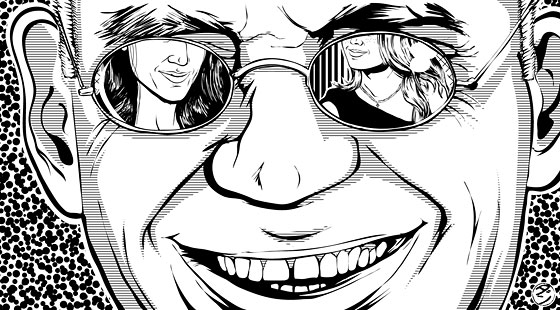
Of all the angry charges leveled against David Letterman these days, one of the most piquant is that his dalliances translated into unfair career opportunities for his mistresses. “What about the people in his workplace who were not sexually involved with him?” asked Lisa Bloom, a legal analyst for CNN last week. “Stephanie Birkitt, one of the women he’s rumored to have been involved with, was repeatedly on the show, on-air. Everybody wants to be on-air, not just because it’s fun, but because you get additional payments from that. Those who are not on-air are suspicious, are uncomfortable. That’s why it’s unprofessional for the boss to be engaged in multiple sexual relationships with staffers.”
It’s only a superficially compelling complaint. Even if you assume Birkitt didn’t have any talent—I, for one, found her charming to watch—this argument assigns far too much weight to sex. If Letterman was unfairly extending preferential treatment to his personal assistant, odds are it wasn’t because he was sleeping with her. It was because he was attracted to her. That’s a crucial distinction. If there was any screwball-comedy sizzle between those two, she was going to get the plum gigs, whether she was sleeping with the boss or not.
Anyone familiar with the politics of office life knows that a boss’s crush can determine the course of some lucky guy or gal’s career. It may not be fair, but it’s no more or less fair than so many other biases and dynamics that affect workplace advancement (nepotism, prep-school connections, grudge matches, sycophancy, that ineffable thing where the boss sees a younger version of him- or herself). The only difference is that crushes are often easier to spot. There’s a fairly substantial body of academic literature that shows that attractive people get better pay and more opportunities. Economists even have a term for this phenomenon—they call it “the beauty premium”—and it supposedly amounts to anywhere from 5 to 15 percent more in pay. (And yes, there’s a corresponding penalty for the plain.) Birkitt, while lovely, wasn’t even your typical office femme fatale. Letterman saw something in her—whether a similar comic sensibility, or just a good-natured foil—which means she’d likely have landed on the air in any event. (And may, in part, have helped explain his crush.)
Perhaps the more serious allegation against Letterman is that he created a situation where his female underlings couldn’t refuse his sexual advances. But this argument implicitly assumes that the women involved in this case had no agency. Why should we assume as much? It’d hardly be the first time young women tacked their sails toward a seductive and powerful man, and none of the women we’ve heard about thus far has claimed he pressured her into anything particularly seedy. Whatever Letterman’s issues were, he was not, apparently, much of a monster. On the contrary: Holly Hester, the intern with whom he admitted having an affair, told TMZ, “I would have married him,” and Regina Lasko, also once an employee of his, actually did.
Of course, if we find out in the coming days that Letterman punished those women who told him no, or that he retaliated against those who broke his heart, CBS should dump him into a 250-gallon vat of onion dip, minus the tortilla-chip suit. For now, we should think of Letterman the same way we think of his guests—glamorous, unknowable, and until circumstances change, in the hot seat.
Have good intel? Send tips to intel@nymag.com.